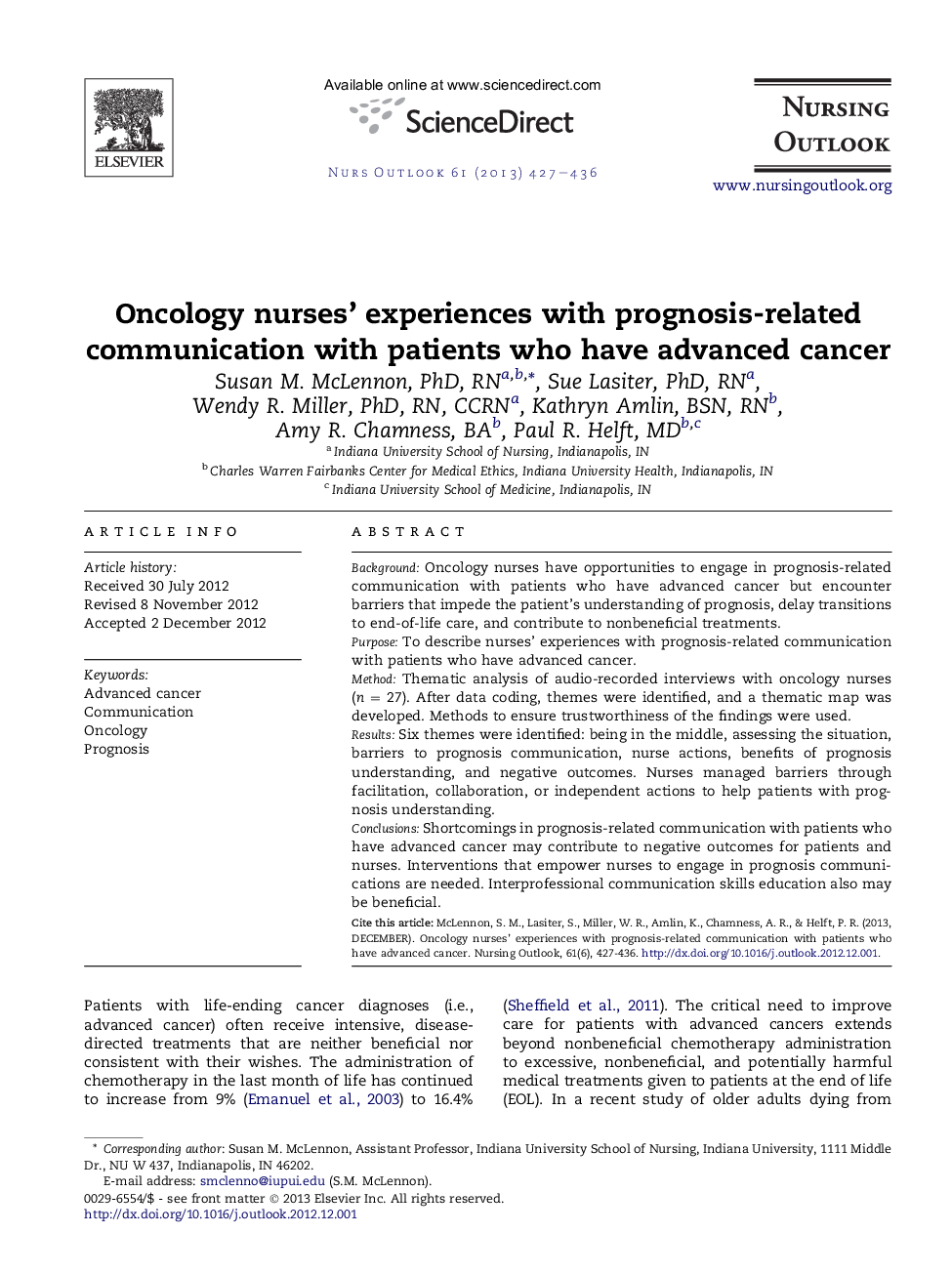| Article ID | Journal | Published Year | Pages | File Type |
|---|---|---|---|---|
| 2673320 | Nursing Outlook | 2013 | 10 Pages |
BackgroundOncology nurses have opportunities to engage in prognosis-related communication with patients who have advanced cancer but encounter barriers that impede the patient's understanding of prognosis, delay transitions to end-of-life care, and contribute to nonbeneficial treatments.PurposeTo describe nurses' experiences with prognosis-related communication with patients who have advanced cancer.MethodThematic analysis of audio-recorded interviews with oncology nurses (n = 27). After data coding, themes were identified, and a thematic map was developed. Methods to ensure trustworthiness of the findings were used.ResultsSix themes were identified: being in the middle, assessing the situation, barriers to prognosis communication, nurse actions, benefits of prognosis understanding, and negative outcomes. Nurses managed barriers through facilitation, collaboration, or independent actions to help patients with prognosis understanding.ConclusionsShortcomings in prognosis-related communication with patients who have advanced cancer may contribute to negative outcomes for patients and nurses. Interventions that empower nurses to engage in prognosis communications are needed. Interprofessional communication skills education also may be beneficial.
